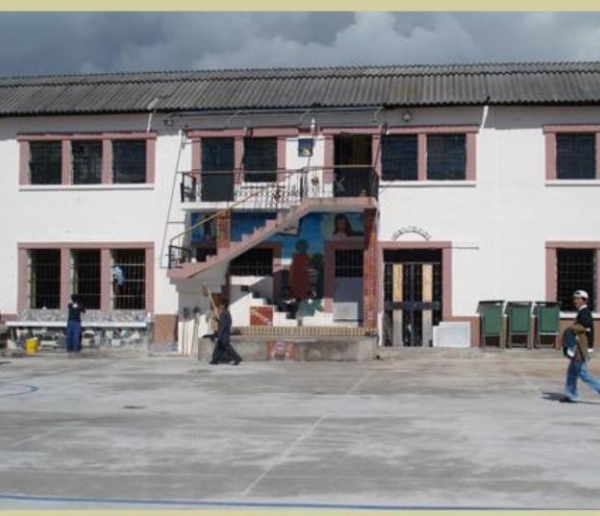An ICDP initiative has been developing in 2023 through Normisjon’s contacts in Ecuador. They have a longstanding friendship with a church in Ecuador and with Actas International Choir concept “Soul Children” that brings together many children and young people. Soul children choir leaders received ICDP training and an introduction to ICDP was given to parents in the network by Kathy Celi, who volunteered this work. Parents attended two group sessions, plus two days of workshops and three days of online meetings. Normisjon hopes to find further openings that would allow the implementation of the ICDP programme through its networks in Ecuador.
Early developments:
During March 2015, the Capuchin Order organized five ICDP workshops through the Club Amigó de Cotocollao, in the north of Quito.
The ICDP training sessions gathered 380 participants, including the directors Father Alberto Gómez and Father José Antonio López, (who are the coordinators of the four Capuchin institutions in Quito), professional psychologists (who work at the Capuchin youth clubs and the youth centres), teenagers, parents and relatives of the teenagers, teachers and professionals from neighboring schools. An estimated 60% of women and 40% of men participated. The workshops were conducted by the ICDP trainer Carolina Montoya, who will be acting as an international consultant on behalf of ICDP.
The Fathers plan to apply the ICDP programme in their work with the most vulnerable families, who face difficulties such as family disintegration, authoritarianism, alcoholism, family abuse, labor exploitation of minors and high levels of school dropouts.
About the work of the Capuchin order in Quito:
Twenty years ago the Capuchin order established two centres for young people: the Virgil Guerrero Centre for juvenile offenders and the La Dolorosa Centre for vulnerable young people. They also set up two youth clubs (Clubes Amigó) in the sectors Guamaní (south of Quito) and in Cotocollao (north of the city) that provide technical training to adolescents (14 to 18 years of age) who are not otherwise engaged in studying or working. A total of 400 adolescents attend these clubs.
Central to the work of Capuchin fathers is a project aimed at influencing and supporting the processes of transformation of a juvenile justice focused on repression to a juvenile justice that respects the principles adopted in the Convention on the Rights of the Child (Articles 37 and 40), the Beijing Rules for the Administration of Juvenile Justice in the Riyadh Guidelines for the Prevention of Juvenile Delinquency, and the Tokyo Rules on Non-Custodial Measures of Liberty.
To reach this goal and improve the dissemination and implementation of socio-educational measures in Latin American juvenile justice, the project aims to promote, at local and regional level, opportunities for training and exchange of good practices open to professionals responsible for the administration of juvenile justice; develop lobbying and advocacy in the countries of project implementation and in regional and international arenas; inform and sensitize civil society on this issue and work with families and communities of young offenders.
Specifically, the proposed activities include a reflection on respect for the legal guarantees and alternatives to imprisonment (restorative justice, probation, providing community service, etc.), work on patterns of parenting with family and community of origin, making room for advice (legal, psychological, etc.), the use of information and communication tools such as radios and local press, promotion of networking as a method of continuous training and instrument of pressure to put the issue on the public agenda.

